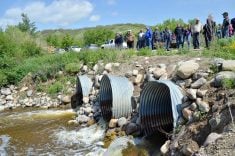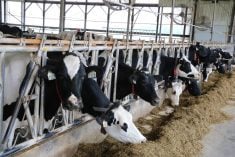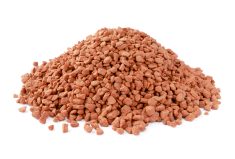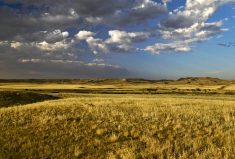Recently announced watershed district expansion is expected to give more farmers access to funding through the On-Farm Climate Action Fund.
On April 17, the province announced an increase of $265,000 to core funding for Manitoba’s Watershed Districts Program and said it will expand three watershed districts in eastern and southern Manitoba municipalities.
Why it matters: Funding programs like the On-Farm Climate Action Fund and GROW are offered exclusively through watershed districts.
Read Also

AAFC organic research program cut
Canada’s organic sector says the loss of a federal organic research program at Swift Current, Sask., will set the industry back.
Across the province, there are 14 watershed districts established under the authority of the Watershed Districts Act that are charged with developing and implementing programs to improve watershed health.
The Northeast Red Watershed District is expanding to include the RM of St. Clements, RM of Lac du Bonnet and RM of Reynolds. The district is also expanding into areas it did not previously cover in the RMs of Brokenhead, Ste. Anne, Tache and Springfield.
The RM of Roland will be split between the Pembina Valley Watershed District and the Redboine Watershed District. The latter district will also expand to include the RM of Macdonald.
“We are thrilled to announce expansion of the Northeast Red, Pembina and Redboine watershed districts to include several new municipalities and to expand the included area in several existing municipalities,” said Manitoba Environment and Climate Minister Kevin Klein.
“Our government has increased core funding for the watershed districts program every year for the last four years, allowing more municipalities to join the program and protect, restore and manage our most valuable resource: water.”
The expansion will also help the Manitoba Association of Watersheds (MAW) achieve its coverage goals, that organization has said.
“Every year that there’s expansion, we get closer to that goal of seeing all of agri-Manitoba covered by watershed district programming,” said MAW executive director Lynda Nicol.
The federal government’s climate action plan rollout in Manitoba has been criticized for having holes in coverage. Certain farmers who want to use the plan’s nitrogen reduction incentives, for example, can’t because not all municipalities have signed onto the Watershed Districts Program.
Those holes exist because the watershed program is voluntary by design.
“When we went from conservation districts to watershed districts, we, along with the government, decided that we wanted to make this program good enough so that municipalities wanted to be part of it,” said MAW board chair Garry Wasylowski.
The recent announcement is expected to help address the problem.
While some agricultural municipalities remain outside a watershed district, Nicol says the program is catching on, particularly in areas where important funding is at stake.
“The programs available through watershed districts speaks to the value of partnering within the program to ensure that there’s access for all agricultural producers to participate in these funding programs,” she said.
Nicol said she would like to one day see the program cover the entire province.
“We want to have all those local councils as well as First Nations partners engaged and partnered within, so that we can reap the benefits of integrated watershed management planning on a grand scale.”
















